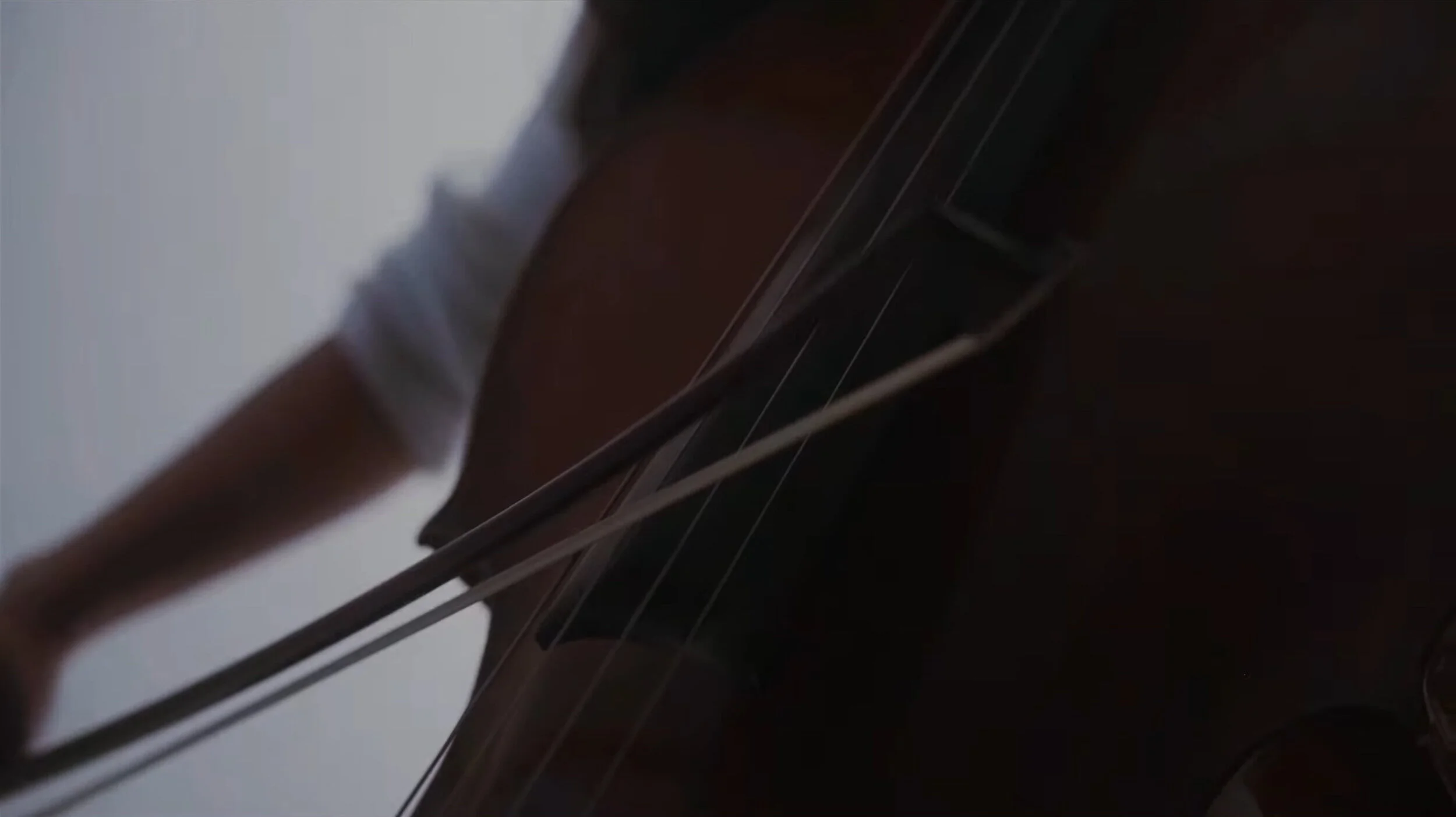On Grieving
ensemble double bass and electronics
written fall 2021
duration 14 minutes
Commissioned by Patrick Raynard
I encountered an unexpected loss in the fall of 2021 and found myself grieving for the first time. The deluge of emotions was overwhelming, so visceral and paralyzing as to be almost sublime. Such heightened vulnerability, though, brought with it a greater sensitivity toward the moments of warmth I found with loved ones. The kindness they showed gave me hope of recovery, and I decided I would keep a musical grief journal, both as an act of remembrance and an act of faith.
On Grieving opens viciously before beginning a gradual, scalar descent. A dreamlike motif for natural harmonics is introduced; it feels misplaced at first, as though recalling a difficult memory. The bassist moves dourly through searching melodies and sparse electronic textures before ultimately reaching its lowest note - a grumbling open C. Suddenly, the piece explodes into rage; the bassist chops intense sextuplets and glisses dramatically as electronics bellow in return. Timbral bowing and scratchy effects sound before settling into a dull, pulsating rhythm as the electronics soften. Eventually, the bass is left on its own, still angry but less driving. The memory motif returns, this time disturbed by detuned seventh partials and scratch tones. The music settles into a new rhythm, slowly rising; it is neither as violent nor as angry as before, but continues to drive forward. Eventually, the rhythm boils over into the piece’s opening material. This time, the memory motif is allowed to flourish. It extends into a full-fledged hymn, drifting about poignantly, before the heaviness of reality returns. The bassist pushes forward nonetheless as electronics amass into a grandiose D major chord. At its climax, the electronics vanish, and the soloist is again left to contend with the memory motif. The music closes peacefully, the motif finally finding peaceful resolution.
Initially requested in October 2020, On Grieving underwent many rewrites before attaining its final form. I owe much gratitude to my friend and collaborator Patrick Raynard for his patience and enthusiasm in realizing this work.
Click here for a perusal score.
